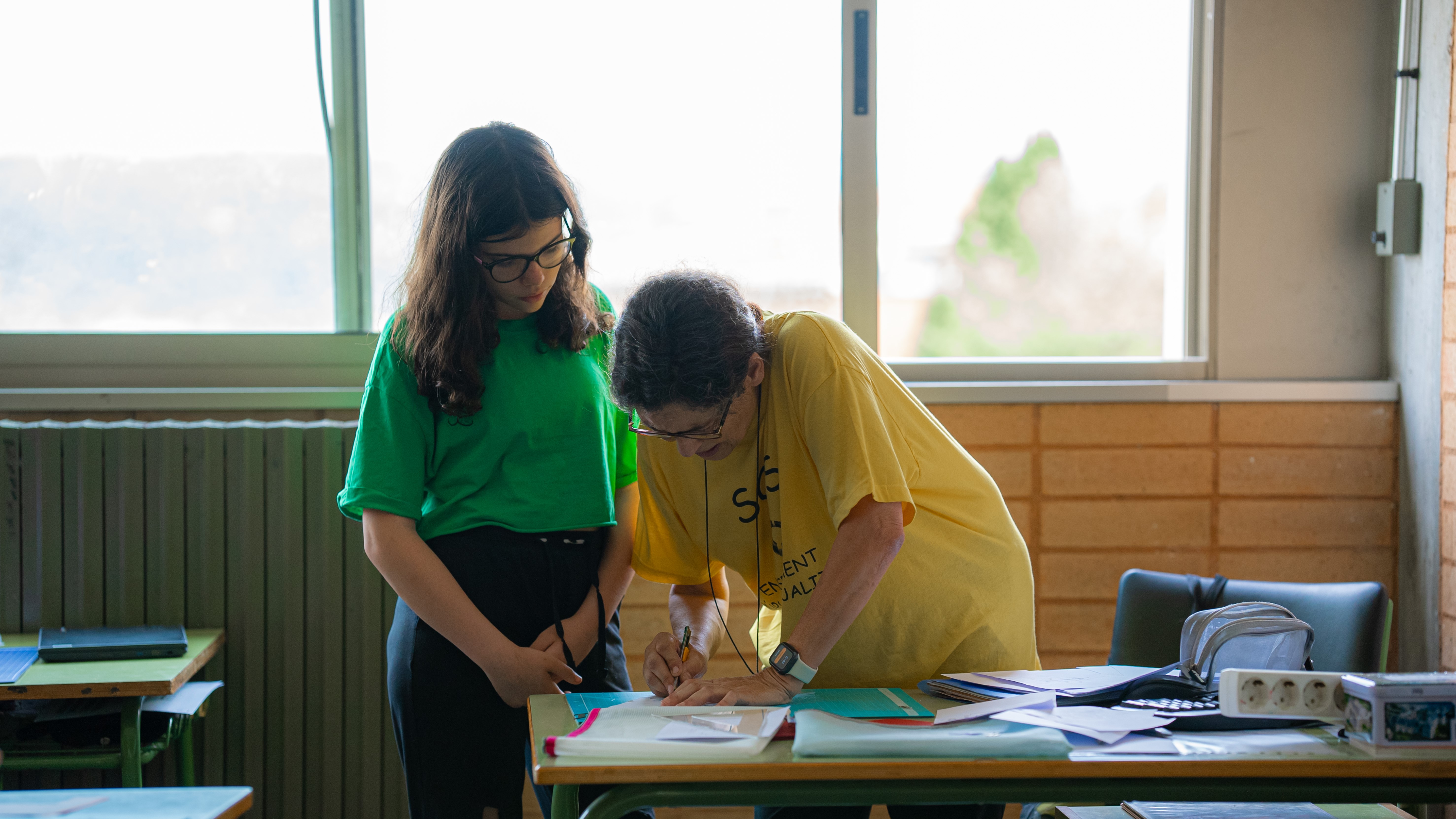How can mentoring help to prevent school dropout?
13/07/2022

There are a range of factors that can cause young people to leave school early. In our research some of the young people we interviewed (1) had dropped out of school, had missed long periods of school or were at high risk of school dropout. These young people described how mentoring helped them to engage with school in a more positive way and remain in school.
The support of mentors is key to help to relieve stress, to deal with situations in a different way and to have a more positive relationship with school.
From our research findings, we identified five key ways in which mentoring helped to prevent school dropout.
1. Relieving stress: Many young people spoke about how their education was affected by the personal stress they had experienced due to their personal or family circumstances. There were many examples given of how having the support of their mentor was instrumental in supporting them to relieve stress, approach situations differently and, as a result, have a more positive relationship with school. For example, a 15 year old girl who took part in our research said she had missed 100 days of school in the previous year due to stress and anger. After being matched with her mentor, she felt much less stressed and angry and returned to school in a more positive frame of mind.
2. Enhancing self-awareness: Some mentees described how their mentor supported them to have a better insight into their own behaviour at school. For example, one young person said that he was always in trouble with teachers but that his mentor helped him to see and understand his own role in creating the conflict. He said that he realised that he didn’t always have to be the joker or ‘messer’ in the class and decided to ‘back off’. As a result, he said that he started to enjoy school a lot more and had better relationships with teachers.
3. Support to navigate the educational system: Many of the young people in our research did not have support from family members to help them to understand the educational system or to provide them with encouragement to do their best. For example, one young person in our research who had moved to Ireland aged 10 and was living apart from her family valued the advice and guidance of her mentor on the education system and the pathways she could take. Another young person was planning to leave school early but her mentor worked with her to draw up a list of ‘pros and cons’ which helped her to see that staying in school was a better option. They put together a plan, with the support of the school, to address some of the challenges she had encountered with school. The mentor worked with her over a long period to support her to stay in school and ultimately progress to college. This type of support was particularly valued by young migrants and by young people from families without experience of further education.
4. Articulating a vision for the future selves: In our research, we have found that mentors spend a lot of time talking to young people about their plans for the future and what they would like to do with their lives. In these conversations, mentors often provide advice and guidance and help to ‘troubleshoot’ in a non-directive way. Over time, these conversations can provide young people with emotional support and encouragement that they can achieve their dreams as well as practical guidance around achieving qualifications. In our research, young people spoke of how having a vision of their ‘future selves’ resulted in a change of mindset with regard to school, and encouraged them to engage positively as a means of achieving their goals. For example, one young boy who had been always in trouble at school and had been expelled from one school realised through conversations with his mentor that he could translate his interest in music into a career path. Together they identified college courses he could do and the exam results he would need to achieve to secure a place in the course he wanted to study. The young person found the prospect very motivating and described himself as a ‘changed man’ at school. He said that his teachers could not believe that he was the same person.
5. Help with homework: Not all young people want to get help with homework from their mentors, preferring to spend their time on more enjoyable activities. However, some young people do value getting support with homework or school projects. This type of support is often welcomed particularly where the young person has decided on a goal that they would like to achieve. For example, some young people who had decided on a particular third level course they would like to do welcomed homework support that could help them to achieve the grades they needed.
The mentor should not attempt to ‘change’ the young person, change occurs as a result of the friendship and support provided by mentoring.
It is important to remember that all of these contributions occurred as a result of having a strong inter-personal relationship between the mentor and young person. The mentor should not attempt to ‘change’ the young person. In our experience, change occurs as a result of the friendship and support provided by the mentor. In other words, we need to trust the process.
Bernadine Brady. Lecturer at the School of Political Science & Sociology, NUI, Galway and a Senior Researcher with the UNESCO Child and Family Research Centre
(1) Interviewees were from 12 to 20 years old. The author refers to the research that is published in:
